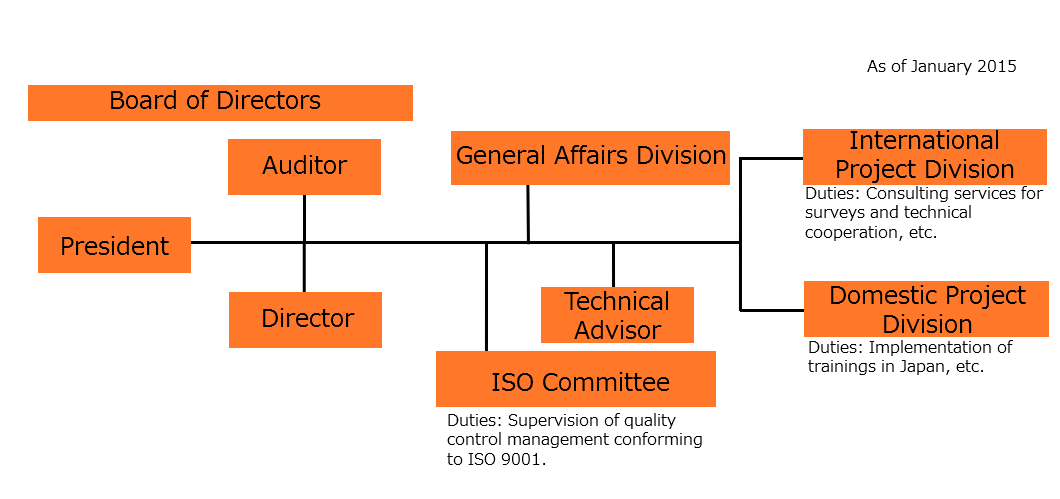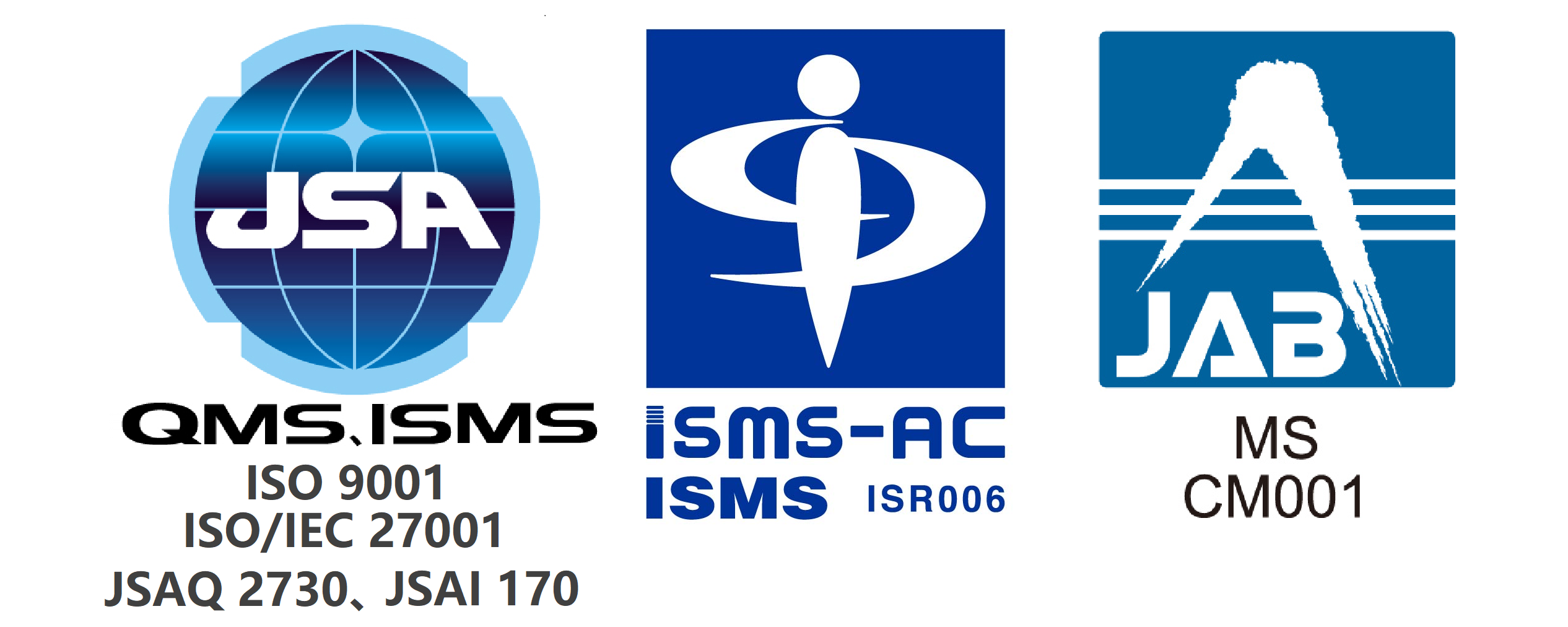President Remarks
 TA Networking Corporation is a development consultant company involved with international cooperation projects in the field of health and medical care implemented through Japanese Official Development Assistance (ODA) and international organizations. Our main clients are the Japanese Ministry of Foreign Affairs and the Japan International Cooperation Agency (JICA), who are the primary ODA-implementing institutions.
TA Networking Corporation is a development consultant company involved with international cooperation projects in the field of health and medical care implemented through Japanese Official Development Assistance (ODA) and international organizations. Our main clients are the Japanese Ministry of Foreign Affairs and the Japan International Cooperation Agency (JICA), who are the primary ODA-implementing institutions.
Bringing together experts who have been active for many years in fieldwork for international cooperation, our company was founded in September 2000. At the time, there were many specialists working individually in the field on projects in developing countries implemented by international cooperation organizations, who did not belong to companies in Japan. Since new project teams were formed each time, it was disappointing to see that teamwork was not effectively exhibited, despite the fact that this is one of Japan’s strengths. Thus, we set our sights on being the home ground from which experts can demonstrate their skills to the fullest extent.
In 2003, the concept of human security, which aims to create a society where each individual is placed at the center regardless of national borders, was incorporated into Japan’s ODA Charter. Since then, focus has been placed on problems in poor developing countries in Africa and other regions that have fallen behind in economic development. Comprehensive assistance has been implemented to include the development of human resources for health , government capacity building, behavioral change for populations, and community empowerment.
Meanwhile, JICA launched a new scheme for technical cooperation projects using the private sector and package contracts in 2000. We have been pioneers in implementing this scheme in the health sector through our Project for Strengthening Medical Management System for Quality Health Services in the State of Eritrea (2008-2011) and Project on Human Resources Development for Health in South Sudan (2009-2013).
Currently, there is active discussion in the international community on Millennium Development Goals (MDGs), and on Universal Health Coverage (UHC) and nutrition etc., as part of the post-MDG framework. There is also movement within Japan regarding ODA Charter revisions and private-public partnerships, which may consequently bring changes to the shape of Japanese international cooperation.
In this constantly changing realm of international cooperation, we have an unwavering vision for leading such projects in the field with a flexible mindset. Your understanding and cooperation is essential in helping us to go forward.
Vision
As a development consultant company involved in international cooperation projects in developing countries, we have two visions:
1. To nurture the power of peace through fieldwork in international cooperation projects; and
2. To increase transparency in the field of international cooperation and share the results of our cooperation with local populations.
Mission
Our two missions in working towards the visions set forward above are:
1. To engage in international cooperation work peacefully; and
2. To widely disseminate the results and outcomes of our work as an organization.
Solution
Communication and Accountability
The services we offer our clients employ the PDCA cycle (plan, do, check, act) as a basis for management. We work in close communication with the client on each stage of the cycle. For “checking” and “acting,” we convey both the positive and negative lessons as “lessons-learned for the future.” In facing more difficult situations, breakthrough solutions using specialized knowledge are presented to offer high-quality services using our strengths in responding flexibly. We also strive to disseminate information through websites and conferences in order to satisfy public accountability.
Wide Range of Human Resources
In addition to our staff who are specialized in individual fields such as maternal and child health care, nutrition, and medical equipment, we also have personnel proficient in cross-cutting fields such as organizational capacity-building, training management, health care systems (human resources for health, health financing, etc.), social security, gender and disabilities, and IT. We also have human resources who excel at assuring the quality of our services in project management, contractual procedures, and the management of deliverables. Furthermore, we have technical advisors who are experts in epidemiology statistics/social research, and fishery and marine product processing, which contribute to nutrition improvement and income generation in developing countries. The strength of the teams made up of these diverse human resources produces high-quality services.
Fostering Ownership and Encouragement for Sustainability
We respect and strive to foster ownership in countries receiving aid. We approach our project counterparts with encouragement for sustainability – gentle encouragement paired with technology transfer. In doing so, the effects of the assistance continue long after the project ends, and a sustainable capacity for generating growth will be enhanced among the counterparts. This also promotes trust in the Japanese method of providing assistance.
Harmonization and Collaboration with Partners
We proactively engage in harmonization and collaboration with development partners who share our objectives for assistance in the field. These partners include international organizations such as WHO and World Bank, bilateral partners such as USAID, as well as major international health NGOs and private sector organizations. By sponsoring and participating in various platforms and working groups, and by meeting with individual partners, we actively create opportunities for discussion that will allow partners to expand harmonized assistance activities by utilizing and strengthening existing systems and frameworks under the ownership of countries receiving aid.
Utilization of International Trends and Discourse
We are constantly watching international trends in aid for developing countries, and incorporate international discourse into our services. In the field of health, we have extensive experience in maternal and child health care and infectious disease control, which are focal issues of Millennium Development Goals (MDGs), as well as experience in Universal Health Coverage (UHC) and nutrition, which is a focus of Post-MDGs. Furthermore, by offering services from the aspect of “health systems”* that help to resolve the health care issues that change every generation, we ascertain the positioning of each issue within the health system while identifying accurate methods for improvement.
Utilization of Experience and Knowledge of Japan
We proactively share our knowledge and experience from Japan’s health care in our fieldwork in developing countries. Although context iffers by country, Japan’s experience in incorporating modern medical systems in the late 1800s, from the periods of establishing measures for acute and chronic infectious disease control, the formation of maternal and child health services, the post-war health care administration reconstruction, and the subsequent period of expanding health care services during the period of rapid growth can be used as a reference in the struggle related to health issues in developing countries. We also design curriculums that organically link Japan’s experience and our company’s fieldwork experience in developing countries for training programs offered in Japan for human resources from these countries.
Partners
We have enjoyed partnerships cultivated over many years with universities, NPOs, and private corporations such as development consultant companies.
Universities that provide academic support in the form of expertise in the field of health include the Oita University School of Medicine who we asked to provide training for our counterparts in the Project for Strengthening Medical Management System for Quality Health Services in the State of Eritrea The University of Ryukyus School of Medicine dispatched experts for the Project on Human Resources Development for Health in South Sudan. We also have a relationship with these universities in which we proactively provide them with assistance for their international cooperation projects and international understanding programs for students.
Our partnerships with citizens’ organizations include cooperative frameworks with JECK (JICA Experts’ Conference of Kanagawa) and the NPOs JECK Associates and Dominica Human Support From these organizations, we are able to receive assistance through their expertise and overseas networks.
Additionally, the use of our extensive partnerships allows us to implement assistance that merges health with other fields. The planning and proposal of a JICA Partnership Program (JPP) project that combines fish cultivation and measures for nutritional problems is an example of our collaboration with the area of fishery. We also have partnerships with private corporations for planning and proposing overseas expansion, such as for a company that manufactures physiotherapy. In addition, the human resources who worked with us as local staff in countries where we have offered assistance thus far are people that we still consider to be our partners.
Company Organizational Structure

Corporate Profile

| Company Name | TA Networking Corp. |
| Address | ST Bldg.3F, Nanpeidai-cho 2-7, Shibuya-ku Tokyo 150-0036, JAPAN TEL.+81-3-5456-8915 FAX.+81-3-5456-3145 |
| URL | https://www.ta-n.com/ |
| Founded | September 2000 |
| Share Capital | 15,000,000 yen |
| President | Takanori SASAKI |
| Sales in 2023 | 392,647,544 yen |
| Number of Employees | 22(2024) |
| Main Customor | Japan International Cooperation Agency (JICA) |
| Accreditation | ISO 9001:2015 (QMS: Quality Management System) ISO/IEC 27001:2013 (ISMS: Information Security Management System) |



